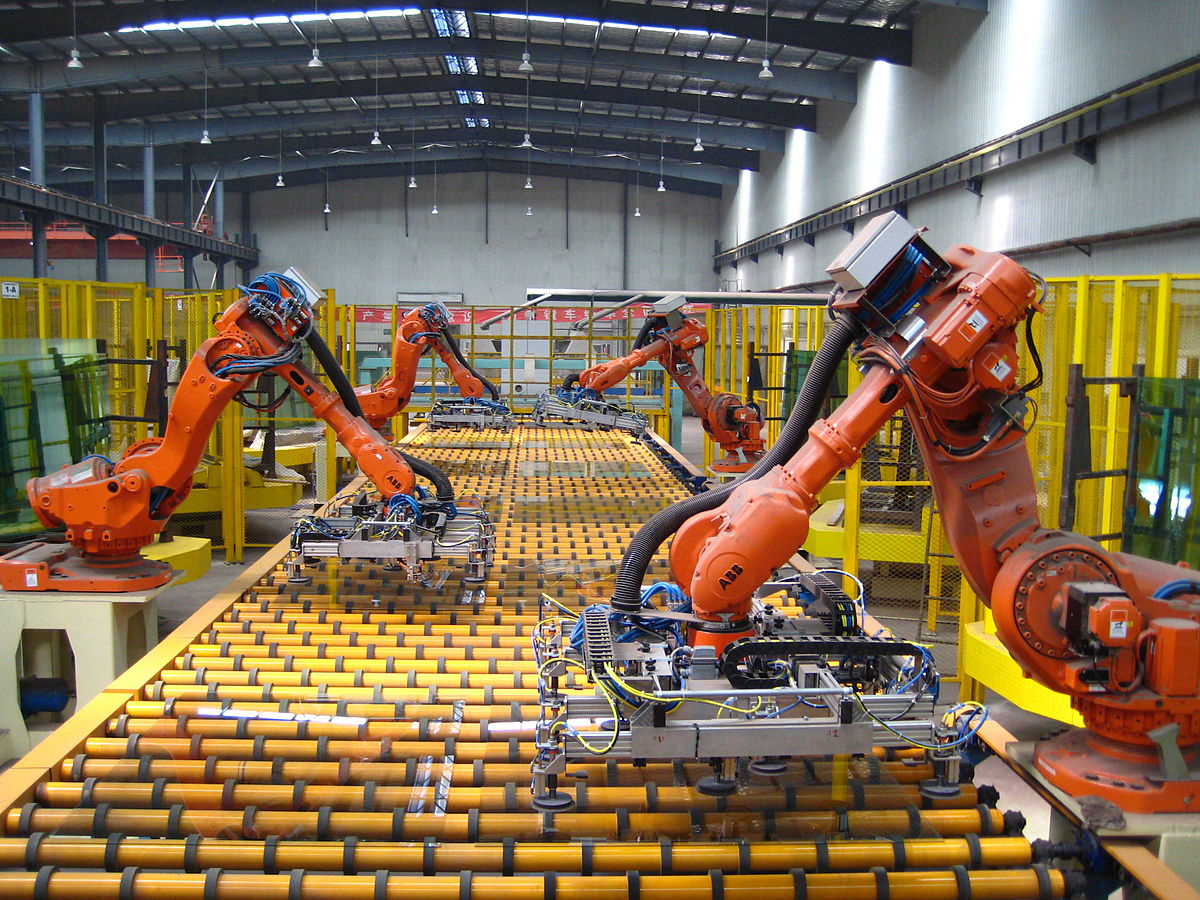by Annette Ekin
In 30 years’ time, industrial companies will have a social purpose: be completely carbon neutral and give everyone the opportunity to fill their unique potential. At least, that’s what five young industrial leaders hope. We caught up with them as they attended the EU’s Industry Days in Brussels, Belgium, on 5-6 February to find out what needs to happen to fulfil this vision.
‘Industries must fulfil a social purpose’
James Sancto, 27, UK
Co-founder and CEO of We Make Change
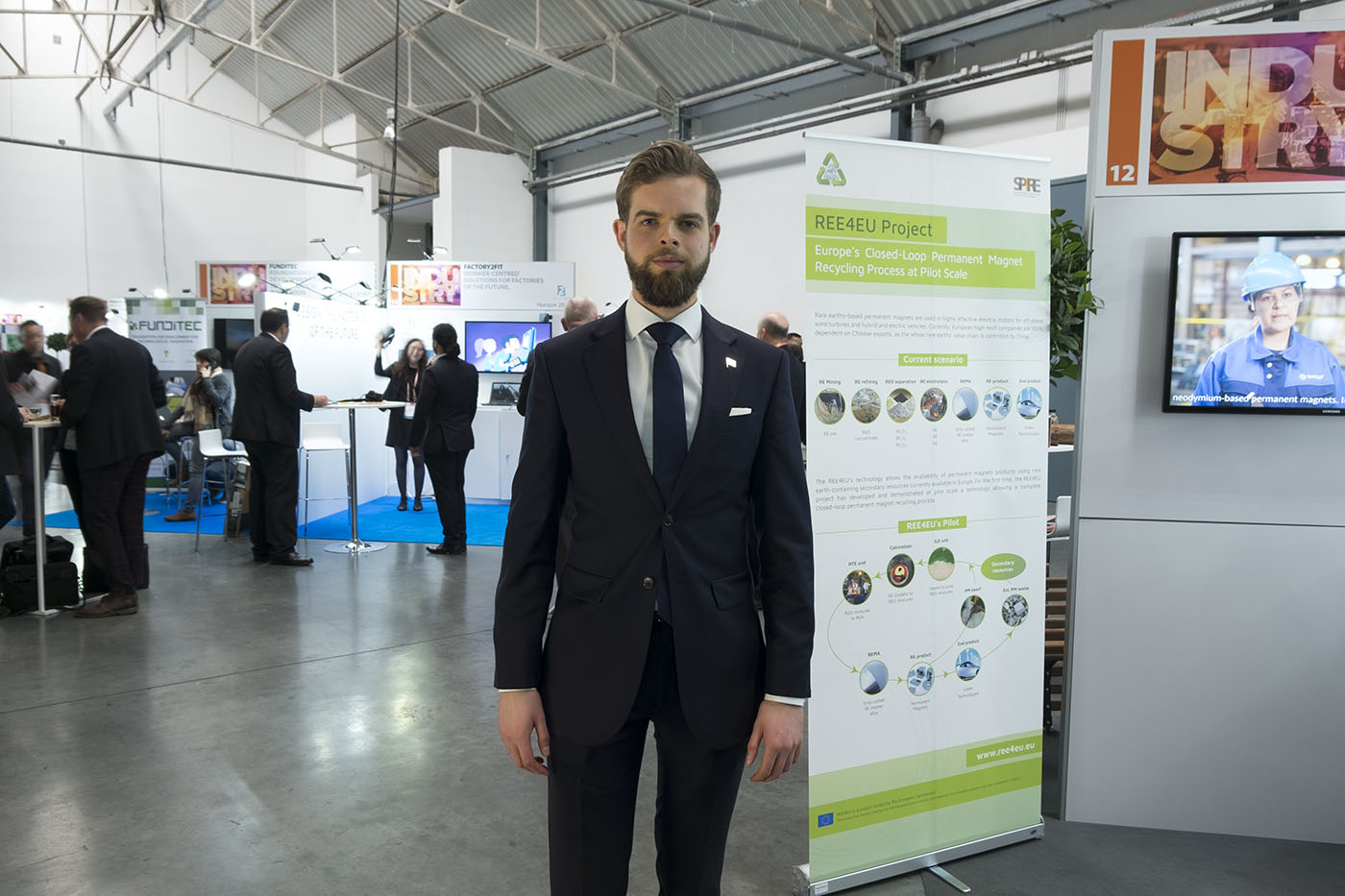
I think it’s key for industry to have the sense of urgency that we need in order to address the biggest challenges – climate change and extreme poverty – that we face.
We’re a not-for-profit organisation that connects with individuals from all over the world and enables them to develop projects online with NGOs and companies that support the causes that they care about – refugees, climate change, eradicating poverty and things like that.
Industry, business need to go completely away from the idea that business exists to maximise shareholder wealth. Industry needs to see its main purpose as fulfilling a social purpose.
One of the ways we do that, and we are kind of are seeing it now, is for individuals and civil society to show that this is our imperative – we like to work for companies that have a social purpose, we buy from companies that have a social purpose. We utilise the power that we have as employees, as consumers and as shareholders to make those changes happen.
Likewise, I think industry needs to think of itself in terms of how can we as organisations, collectives of individuals with a range of skills, most effectively support the types of social outcomes that we are seeking to create in society.
(What I want to see by 2050) is related to the 2030 Sustainable Development Goals. It would be a world where we’ve ended poverty, nobody goes to bed hungry, everybody leads a healthy life, every child gets a good education, there’s equal pay for equal work, clean and affordable energy. It’s about addressing the threat of climate change once and for all, but also where we produce and consume responsibly.
For me, the vision of the world that we want to create is one that is built on a foundation of justice – one where everyone has an equal opportunity to become what they’re capable of becoming.
‘Technology and infrastructure will improve our daily lives’
Ioanna Papanikolaou, 26, Greece
Civil engineer and PhD researcher in engineering
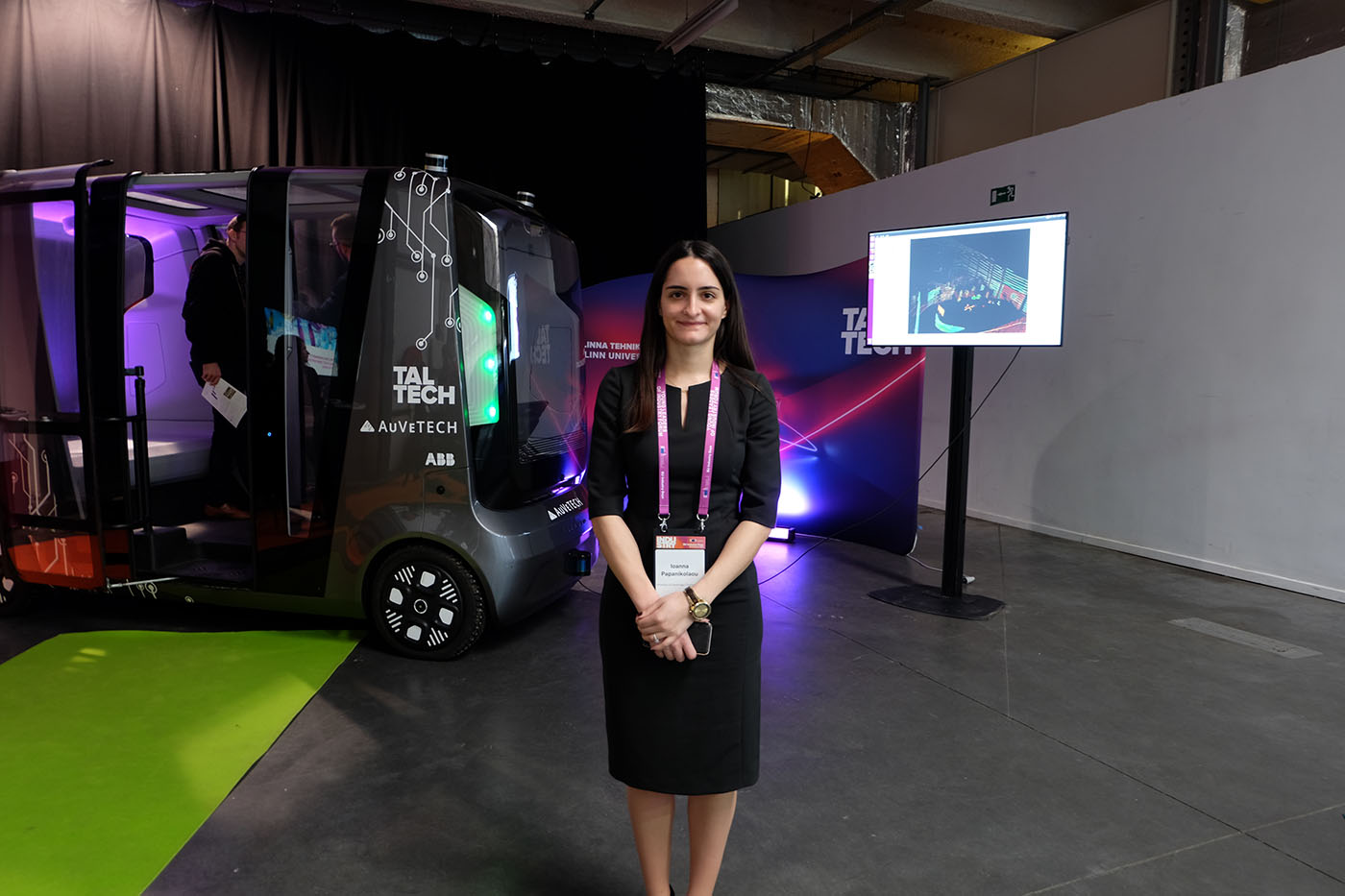
For me, engineering has always been about improving people’s lives. I think should be really the fundamental objective of every engineer, every person that works in the industry.
I’m doing my PhD at the University of Cambridge (UK) where I’m looking into advanced materials for infrastructure. My research is focused on self-sensing and self-healing materials. This means that if your building has cracks it could automatically diagnose its condition. I also work for a UK engineering company called Costain as innovations manager and in smart infrastructure.
More and more people are moving to cities. Challenges extend from the fact that people expect more from their infrastructure whilst governments don’t have any more money to spend. I think the solutions can only really come from technology. It is the most efficient way to run on-time (transport) services, to secure the energy supply, to decarbonise the grid.
I think it is possible to achieve zero emissions. I think it also has a lot to do with the mindset of people that it now starts to change – in how people act and behave. Technology will be able to capture some of these emissions and make the whole planet carbon neutral.
In engineering and infrastructure, we were very slow in the past but now we are learning from other industries like aviation about how to adopt digital technology. In the last five years I’ve seen loads of new innovations. For example, (at Costain) we are using so many technologies to track all the high value assets, (to) track people to understand safety, health and wellbeing.
By 2050, I expect everyone to have an autonomous vehicle that’s fully connected. I expect artificial intelligence to make my life easier in my day-to-day job. I think most of these technologies will be accelerated and fully implemented in (how we work, move and live in) our day-to-day lives.
‘Recruit people based on what they can become’
Lisa-Maria Sommer, 27, Austria
CEO and co-founder, MTOP (More Than One Perspective)
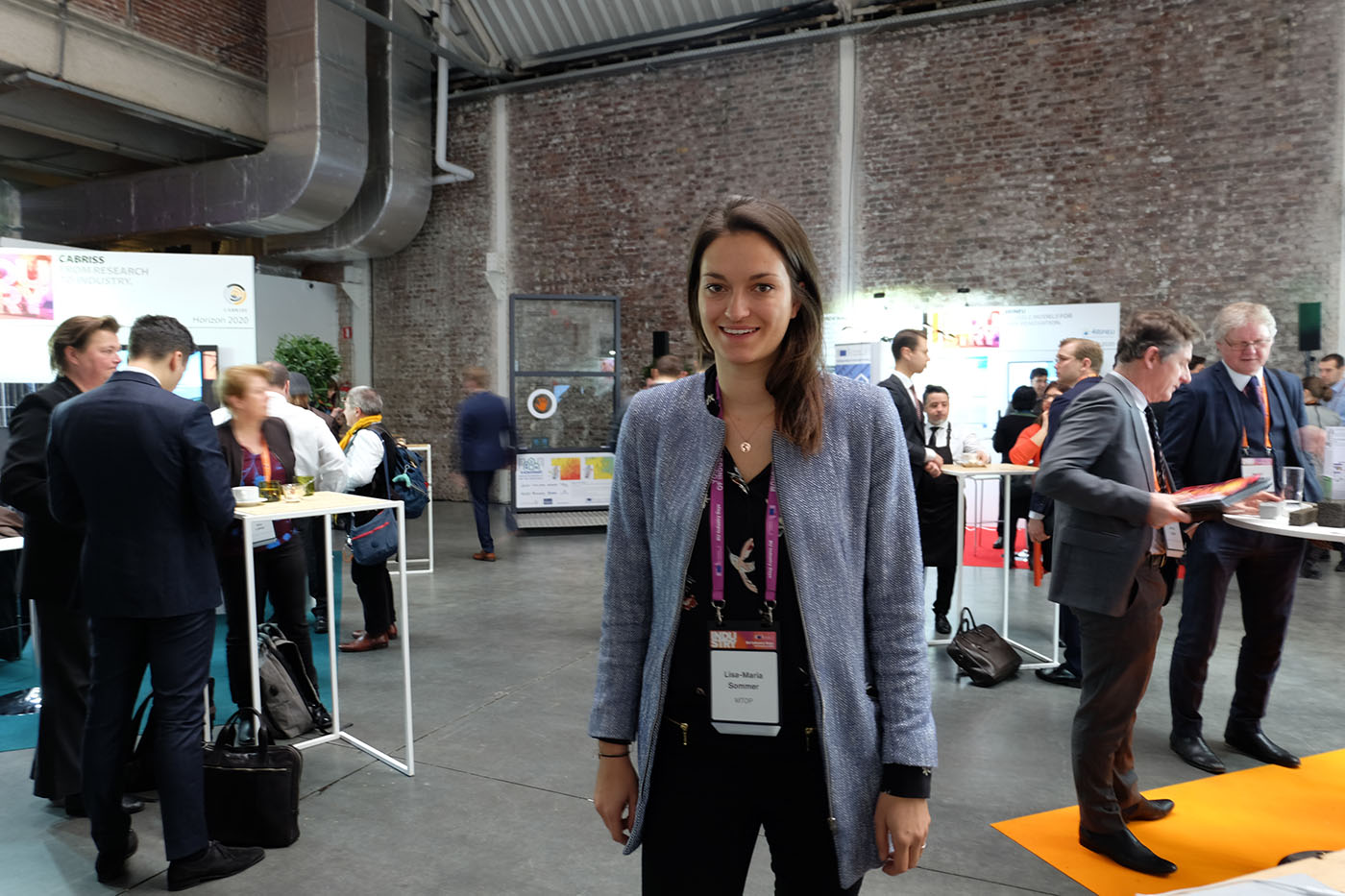
The way we do industry shapes our society. We need to take that into account. As citizens, politicians or entrepreneurs we need to see the bigger picture and be aware of the effect we have on the society.
I’m what you could call a social innovator or social entrepreneur. Three years ago I founded a social business together with two colleagues that works on the labour market integration of refugees in Austria. Our aim is for a more inclusive society and to make use of unseen potential.
That happens a lot to refugees. They come to new countries with all their skills, potential and education – but they’re just seen as refugees, not as people who are capable of many things. That is what we are trying to reveal by getting to know them and matching their skills with the needs in the Austrian labour market.
In the last two years we’ve trained approximately 160 refugees and 75% of them have started working. We really focus on refugees who have experience or skills in the IT, engineering or business sectors – accountants, civil engineers, technical drawers, developers, IT support, system and network administrators.
In our case, companies use recruiting processes that decide on the individual’s potential and fit to the job or company in the hiring process. The first thing that companies often question is the language barrier. Most of (the refugees we work with) have managed to learn German to a very high level in a year and half, which is a really impressive achievement. So we build on that. People who can learn really quickly have an essential skill set for many companies.
I would like to see the recruiting processes become more open and inclusive. My vision for 2050 is that everyone can contribute to society or to industry with all his or her potential. The best thing that could happen is that individuals are seen as individuals and then it doesn’t matter if you’re a refugee or a citizen or a local or whatever.
‘Automation will enable time for human creativity’
Aleksandra Adamowicz-Hesselroth, 28, Poland
President, Youth Forum Lewiatan
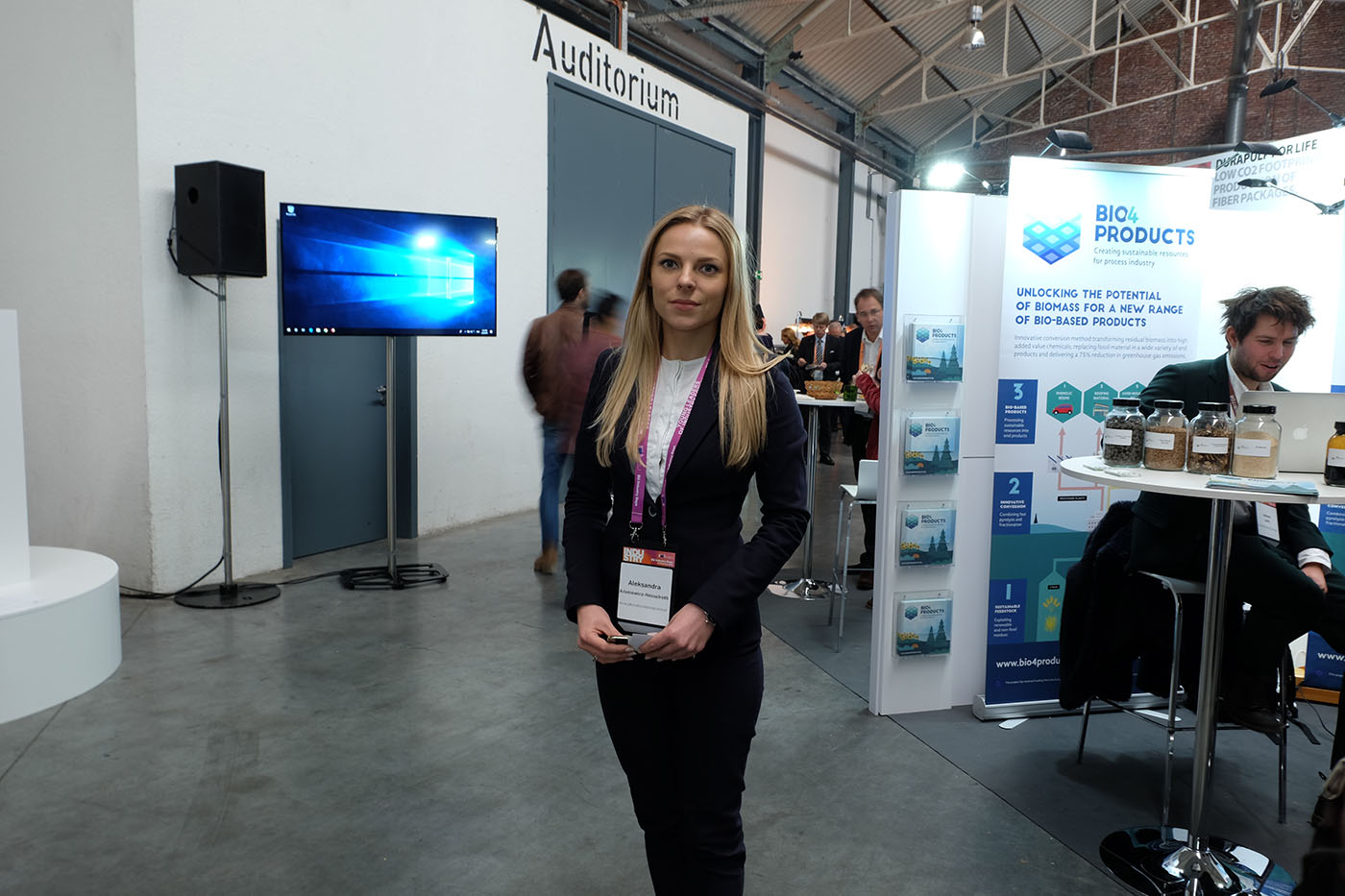
Technology is changing so much in how we work, how we socialise with people. But I think the most important issue is people’s adaptability to using technology.
I’m the leader of the youth forum of the employee association in Poland and an entrepreneur in the HR industry, combining traditional human resources with technology.
Young people are (digitally) fluent and they’re from a different galaxy as compared to people who have already spent 20 years in the labour market. For them it’s quite hard to adopt this technology. So I see this discrepancy between younger and older generations.
(In the forum) there are young people from very different industries. What comes to mind is there’s a lack of heavy industries. They (younger people) think that industry is not so much about assembly line production. It’s more about robotisation and using new technologies.
(By 2050) I see a lot of challenges and so many areas will be digitalised even more because people as consumers have become used to technologies that are fast. This will influence also how we work.
Humans will not only be seen as a worker but as a service provider. But at the same time, I see that it will be much more human-centric.
(People will have more time) for teamwork, they can socialise with colleagues more and then be more innovative and create a much better working environment and that will be also very important especially for those that are creative.
Let’s take a simple customer service example because employees working in this industry are (seen as a) heavily endangered species, but I don’t actually think that is true. What they have are the human skills. The analysis work, the boring email sending, that will be automated by machine. The moment when you want to have contact with the company it will be with a human. And that would be the most precious skill, this empathy, this connection with real person.
‘We should tax polluting companies’
Robert Heinecke, 28, Germany
CEO and co-founder, Breeze Technologies
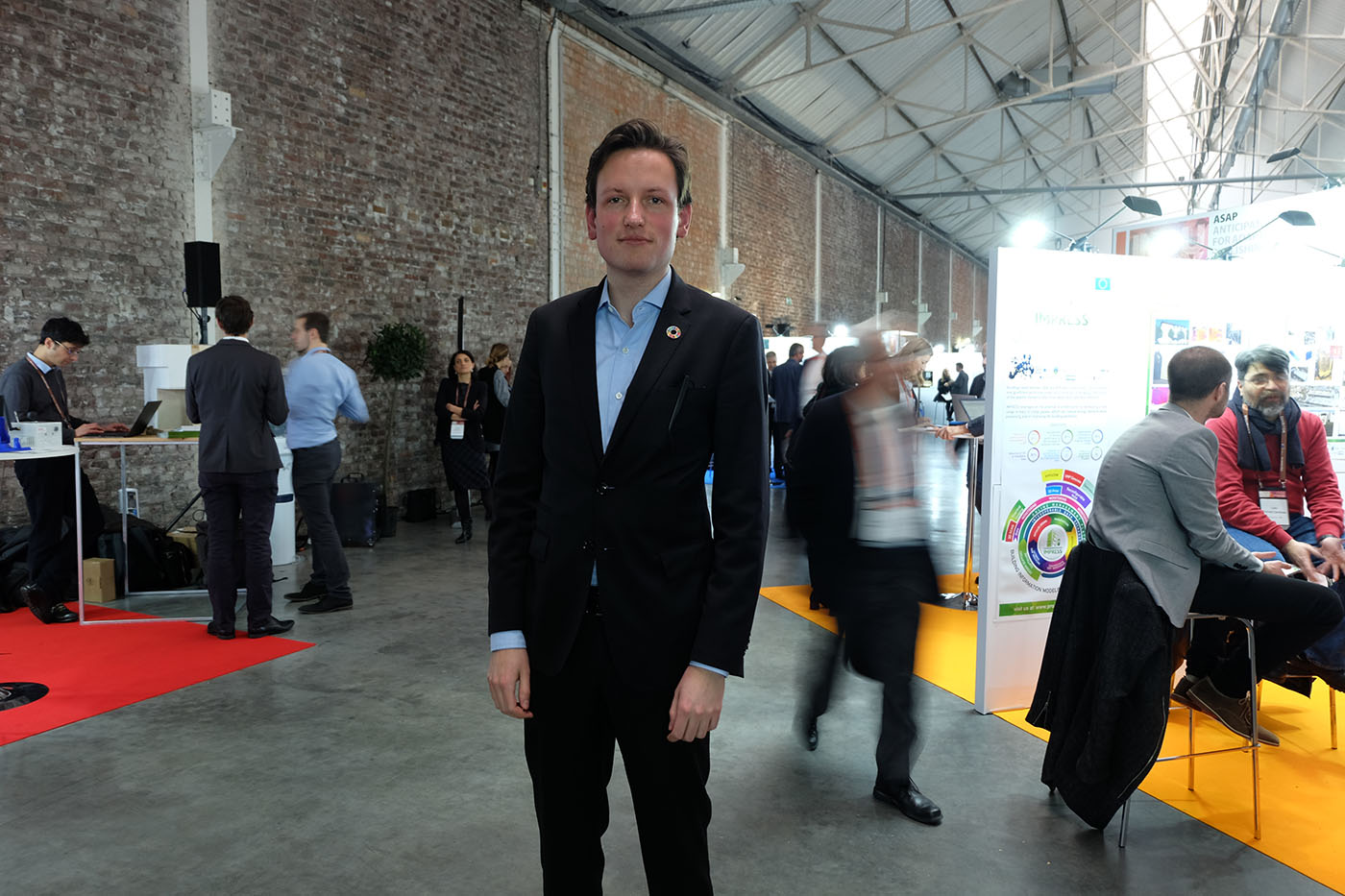
Today’s major challenge is sustainability. Making sustainability a part of the decision-making process for shareholder value optimisation. I mean, nobody really does anything just because it’s good for the general public.
Breeze Technologies is a German start-up. We basically fight air pollution with artificial intelligence – we developed our own sensors that we deploy in the urban landscape to gather hyper-local air quality data. We enrich those data with others like satellite data and use all this to analyse what is going on and what are the best interventions to improve the air quality.
Some of our products are for the public so they are free to use, and others are for our clients – corporate or cities and municipalities.
One of the main trends that we see today is transparency, people wanting to hold industry, and all public actors, accountable for what they are doing. We are trying to incentivise our customers to share part of the data that we are generating for them with the public. If our clients say, “OK, the hourly air quality values that are gathered – we want to share those with the public”, we subsidise the sensors.
I see industry as (having) two definitions – the producing industries, and the broader spectrum of all companies that produce something, whether that’s tangible and causes environmental pollution, or intangible like software and then has ethical implications.
There needs to be an incentive for them (to be sustainable). (It could be) consumers saying, OK, this company is doing something for the environment, I’d rather buy products from them than from their competitor who is polluting and cutting down rainforests.
Carbon tax (on emissions) is one way (to do it). I would go a step further and say put a tax on all pollution that is being created then go from there and create an incentive for companies to minimise their environmental impact.
(By 2050) I would like to see some kind of closed loop industry, ensuring that the impact from any processes is mitigated in a second step.
As told to Annette Ekin. The interviews have been edited and condensed for clarity.
Originally published on Horizon.

